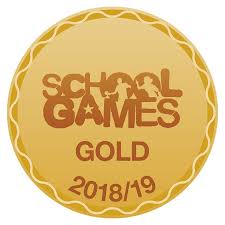How to support your children at home with writing and build a love of language?
1. Read to your child
Written language is often very different from spoken language. Read to your child as often as you can, including longer chapter books and non-fiction books about a subject they are interested in. This will help them to become more familiar with different styles of writing.
2. Have your child to read to you
Making time to hear your child read isn’t just good for their reading. Seeing words in print helps them to understand the words, to spell them, and to see how grammar and punctuation are used to make meaning.
When you read fiction, occasionally talk about the choices the author has made. For example:
‘I wonder why the author has chosen to describe the castle as “gloomy”? I wonder what that tells us about what might happen there?’
When you’re reading non-fiction, talk about the features that make it easy to read such as headings, a glossary or diagrams.
3. Try some real-world writing
Writing for a real purpose can be a great way to fit in some practice. Writing cards, shopping lists, or letters or messages to relatives can be motivating real-life reasons for writing, and can show children how useful it is to be able to write well. They will also learn that we use different writing styles in different situations.
Your child might enjoy keeping a diary or writing short stories based on books they have read or toys they enjoy playing with. Perhaps your child might like to create a poster or mini-book about a topic they love. They might like to create their own comic strip about a character the know well. Be sure to encourage your child to write about what most interests them, as this is the best way to keep them enthusiastic.
4. Tell stories aloud
Giving your child the opportunity to tell stories orally is a great way to get them used to structuring their ideas and using adventurous language. If they’re not sure where to start, see if they can retell a story that they already know well, like Little Red Riding Hood or Three Little Pigs. If your child prefers non-fiction, encourage them to tell you a subject they are interested in – get them to talk in full sentences with plenty of detail.
Video: How to develop storytelling skills
5. Find story inspiration
You can find fun story ideas anywhere! Why not raid your kitchen cupboards or hunt through the attic to find lost treasures? Anything from an old hat to a telescope will do the trick. What could the object be used for? Who might be looking for it? What secrets could it hold? Suggest different genres such as mystery or science fiction and discuss how the item might be used in this kind of story.
Real-world facts can also be a great source of inspiration. For example, did you know a jumping flea can accelerate faster than a space rocket taking off into orbit? What crazy story can your child make out of this fact? Newspapers and news websites can be great for finding these sorts of ideas.
If your child prefers non-fiction, use the facts you find to create a fact sheet, a poster or a mini-book.
6. Get drawing
If your child isn’t sure where to start, it can sometimes be helpful to sketch out their ideas first. For instance, can they draw a picture of a dastardly villain or a brave hero? How about a scary woodland or an enchanted castle? Can they draw the shark or spider they want to write an information book about?
Your child might also find it useful to draw maps or diagrams. What are all the different areas of their fantasy landscape called? How is the baddie’s base organised? Or for non-fiction, where does their shark or spider live?
Some children might enjoy taking this idea a step further and drawing their own comics. This is great practice – it stretches your child’s creativity, gets them thinking about plot, character, and dialogue, and is a big confidence boost once they’ve finished and have an amazing story to look back on.








